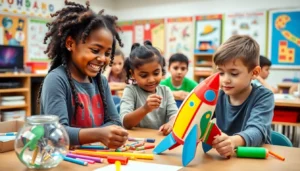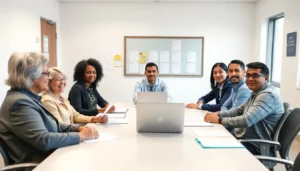Table of Contents
ToggleIn the heart of Philadelphia, where cheesesteaks reign supreme and the Liberty Bell stands proud, a different kind of education is making waves. The Philadelphia Montessori Charter School is not just another school; it’s a vibrant community where curiosity thrives and learning is a joyful adventure. Imagine a place where kids don’t just memorize facts but explore, create, and discover the world around them—sounds pretty great, right?
With a unique approach that blends independence with collaboration, this school embraces the Montessori philosophy, turning traditional education on its head. Students here aren’t just sitting at desks; they’re diving into hands-on projects that spark their imaginations and ignite their passions. If you’re looking for an educational experience that prepares children for the real world while keeping the fun alive, Philadelphia Montessori Charter School might just be the perfect fit.
Overview of Philadelphia Montessori Charter School
Philadelphia Montessori Charter School offers a unique educational experience grounded in the Montessori philosophy. It fosters an engaging learning environment where children explore concepts through hands-on activities and collaborative projects.
Mission and Vision
The mission focuses on nurturing each child’s innate curiosity. It strives to create a community where students become independent thinkers and lifelong learners. Vision seeks to prepare students for future challenges by promoting creativity and critical thinking. Students engage in real-world experiences, empowering them to excel academically and socially. Emphasis is placed on individualized learning paths that cater to each child’s needs and strengths.
Core Values
Core values include respect, community, and a passion for learning. Respect for oneself and others fosters a positive learning environment. Community involvement plays a vital role, encouraging collaboration among students, parents, and educators. Passion for learning drives the school’s approach, inspiring students to take ownership of their education. Inclusivity ensures that every child feels valued and supported. Commitment to continuous improvement shapes the school’s ongoing development, highlighting the importance of adapting to meet evolving educational needs.
Educational Philosophy
Philadelphia Montessori Charter School embraces a unique educational philosophy rooted in the Montessori method. This approach fosters independence and encourages students to engage actively in their learning.
Montessori Method Explained
The Montessori method emphasizes self-directed learning, sensory experiences, and collaborative activities. Students learn at their own pace, allowing for personalized educational journeys. Teachers serve as guides, facilitating exploration rather than delivering lectures. This hands-on approach helps students develop critical thinking skills while nurturing their natural curiosity. Emphasis on mixed-age classrooms promotes peer learning, fostering a sense of community. Children gain valuable social skills as they interact with classmates of varying ages and abilities.
Curriculum Overview
The curriculum at Philadelphia Montessori Charter School integrates core subjects with creative and practical experiences. Students explore subjects like mathematics, language arts, science, and culture through hands-on projects. This integration allows for deeper understanding, connecting academic concepts to real-world situations. In addition, art, music, and physical education play vital roles in promoting holistic development. Assessment focuses on individual progress rather than standardized tests, ensuring that each student’s unique learning path is recognized. The curriculum remains flexible, adapting to the interests and needs of the children.
Facilities and Resources
Philadelphia Montessori Charter School features modern facilities that support its innovative educational philosophy. Emphasis on nurturing curiosity and independent learning shapes the school’s environment.
Classrooms and Learning Spaces
Classrooms reflect the Montessori approach, designed to foster exploration and collaboration. Flexible layouts enable children to move freely and engage in hands-on activities. Each space contains a variety of materials that cater to different learning styles, promoting self-directed education. Unique learning tools, including sensory materials and interactive resources, support the development of critical thinking. Natural lighting enhances the inviting atmosphere, creating a comfortable setting for active learning.
Outdoor Areas and Libraries
Outdoor areas offer students opportunities for exploration and physical activity. The school provides gardens that encourage environmental stewardship and hands-on discovery. Children engage with nature, enhancing their understanding of the world around them. Libraries are well-stocked with diverse literature, fostering a love for reading. Quiet reading nooks create inviting spaces for individual reflection and study. Resources include digital learning tools that facilitate collaborative projects, ensuring that students develop essential research skills.
Faculty and Staff
The faculty and staff at Philadelphia Montessori Charter School play a crucial role in fostering a supportive and engaging learning environment. Their diverse expertise and commitment to the Montessori philosophy ensure students thrive.
Teacher Qualifications
Teachers at the school possess relevant Montessori certifications along with degrees in education or related fields. Expertise in child development allows educators to tailor individualized learning experiences. Many teachers have prior experience in Montessori settings, enhancing their understanding of this unique approach. Ongoing professional development encourages staff to stay current with the latest educational practices and methodologies. Additionally, they emphasize the importance of collaboration, working closely with families to create a cohesive support system for each student.
Staff-to-Student Ratios
The school maintains favorable staff-to-student ratios to provide personalized attention. Typically, the ratio averages around 1:10, ensuring that each child receives adequate support during their learning journey. Smaller class sizes promote stronger relationships between teachers and students, facilitating more meaningful interactions. This environment fosters students’ independence while allowing staff to monitor individual progress closely. With dedicated staff present, each student benefits from tailored guidance and encouragement, essential for holistic development within the Montessori framework.
Student Life
Student life at Philadelphia Montessori Charter School embodies a rich blend of academic engagement and personal growth. It prioritizes holistic development, ensuring every child thrives in a nurturing environment.
Extracurricular Activities
Extracurricular activities enhance the overall educational experience at the school. Students participate in various clubs, including gardening, robotics, and music, allowing for self-exploration and creativity. Art programs encourage expression through visual arts and crafts. Participation in sports promotes teamwork and physical fitness, fostering a sense of community. Each offered activity aligns with the school’s philosophy, making learning enjoyable and dynamic.
Community Involvement
Community involvement is a cornerstone of the school’s ethos. Students engage in local service projects, developing a sense of responsibility and connection to their community. Collaborations with local organizations host various events, fostering partnerships that enrich learning experiences. Parents contribute through volunteer opportunities, creating an inclusive atmosphere. Regular community gatherings enhance relationships, reinforcing the concept of collaboration and mutual support within the educational journey.
Parental Involvement
Parental involvement at Philadelphia Montessori Charter School plays a vital role in enhancing the educational experience for students. Engaging parents fosters a strong community and promotes collaboration between home and school.
Communication Channels
Effective communication channels exist to keep parents informed and engaged. Monthly newsletters provide updates on curriculum, events, and important dates. Regular parent-teacher conferences facilitate discussions about student progress and development. The school utilizes online platforms for announcements and scheduling, creating convenient access to essential information. Additionally, social media accounts serve to showcase student achievements and highlight school activities, encouraging a sense of belonging and community participation.
Volunteer Opportunities
Numerous volunteer opportunities enable parents to contribute actively to the school environment. Events such as community service days invite families to participate in collaborative projects that benefit the local area. Classroom support allows parents to assist teachers with activities and projects, enhancing students’ learning experiences. Fundraising events provide chances for parents to engage with the broader school community while raising resources for programs. These involvement options foster deeper connections among families, teachers, and students, creating a supportive network that enriches the educational journey.
Philadelphia Montessori Charter School stands out as a beacon of innovative education. Its commitment to fostering curiosity and creativity ensures that students thrive in a supportive environment. With a focus on individualized learning and holistic development, the school prepares children for future challenges while making education enjoyable.
The strong community ties and active parental involvement further enrich the educational experience. By prioritizing collaboration and respect, the school cultivates independent thinkers who are ready to engage with the world. Philadelphia Montessori Charter School not only educates but also inspires a love for lifelong learning in every child.






